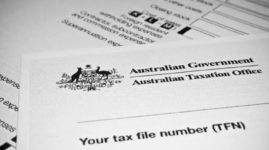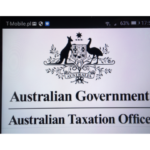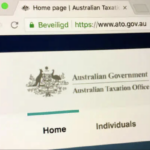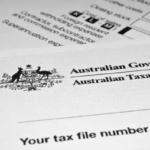The Law, Defences and Penalties for Tax Fraud and Tax Evasion in Australia

The terms tax fraud, tax evasion and tax avoidance or minimisation are often used interchangeably, but it is important to be aware there are important differences which can impact on the way enforcement agencies such as the Australian Taxation Office (ATO) deal with the situations.
Tax fraud
Tax fraud is the most serious category of offence and generally involves intentionally or recklessly making dishonest statements to the Australian Taxation Office (ATO) that are false or misleading in important respects, and often lead to the receipt of funds to which persons or companies are not entitled.
Tax evasion
Tax evasion generally describes the under-reporting of income or over-reporting of expenditure with a view to paying less tax than that for which an individual or company is liable under the law.
Tax avoidance or minimisation
Tax avoidance is also known as tax minimisation, and often involves using what are colloquially known as ‘legal loopholes’ to reduce or avoid having to pay tax.
This conduct is perfectly legal.
Tax offences in New South Wales and Australia
Tax offences that apply in New South Wales are primarily contained in three pieces of legislation: The Criminal Code Act 1995 (Cth) and Taxation Administration Act 1953 (Cth), which apply across Australia, and the Taxation Administration Act 1996 (NSW), which applies to conduct that is alleged to have occurred in New South Wales.
Criminal Code Act 1995 (Cth)
Sections 134.1(1), 134.2(1) and 135.4(3) of the Criminal Code Act (the Act) contain most frequently prosecuted tax fraud and tax evasion offences, each of which carry a maximum penalty of 10 years in prison.
Obtaining property by deception
Section 134.1(1) is headed ‘Obtaining property by deception’ and stipulates that a person is guilty of this offence if:
- the person, by a deception, dishonestly obtained property belonging to another with the intention of permanently depriving the other of the property, and
- the property belonged to a Commonwealth entity.
To establish the offence, the prosecution is therefore required to prove each of the following ‘elements’ beyond a reasonable doubt:
- The defendant acted dishonestly, and
- Engaged in a deceptive act, which
- Resulted him or her obtaining property, such as funds or assets,
- That property belonged to a Commonwealth entity, and
- The defendant intended to permanently deprive the owner of the property.
The defendant is not guilty if the prosecution is unable to prove all of those elements.
Obtaining a financial advantage by deception
Section 134.2(1) of the Act is titled ‘Obtaining financial advantage by deception’ and provides that a person is guilty of this offence if:
- the person, by a deception, dishonestly obtained a financial advantage from another person, and
- the other person was a Commonwealth entity.
Conspiracy to defraud
Section 135.4(3) is headed ‘Conspiracy to defraud’ and states that a person is guilty of this offence if:
- the person conspired with another person with the intention of dishonestly causing a loss to a third person, and
- the third person was a Commonwealth entity.
Subsection 135.4(4) makes clear that to be convicted of the offence, it is not necessary for the prosecution to prove that the defendant knew the third person was a Commonwealth entity.
General dishonesty
An alternative to the above offences is contained in section 135.2(1) of the Act, which is titled ‘Obtaining financial advantage’ and carries a much lower maximum penalty – 12 months rather than 10 years in.
A person is guilty of obtaining a financial advantage if the prosecution can prove beyond reasonable doubt that:
- the person engaged in conduct as a result of which he or she obtained a financial advantage for himself or herself from another person,
- the person knew or believed he or she was not eligible to receive that financial advantage, and
- the other person was a Commonwealth entity.
Taxation Administration Act 1953 (Cth)
The Taxation Administration Act 1953 is another piece of Commonwealth legislation, which means it applies across the nation.
The Act contains both criminal offences for tax-related contraventions that are considered to be serious, as well as administrative penalties for breaches that do not amount to a crime.
Criminal offences in the Act include:
Failing to comply with requirements under taxation law
Section 8C(1) of the Act makes it an offence to refuse or fail, when and as required by taxation law to do any of the following things, among others:
- to give any information or document to the tax commissioner,
- to give information or a document in the manner it is required,
- to lodge an instrument for assessment,
- to produce a book, paper, record or other document, or
- to attend before the commissioner or another person.
Failing to answer questions when attending before the tax commissioner
Section 8D(1) of the Act makes it an offence for a person who attends before the tax commissioner or a delegate to refuse or fail, when and as required by taxation law to do so:
- answer a question, or
- produce a book, paper, record or other document.
The maximum penalty for these offences is 20 Commonwealth penalty units for a first offence, or 40 penalty units for a second or subsequent offence, or where the matter is referred to a court which is satisfied the person has previously been convicted of two or more offences, 12 months in prison and/or a fine of 50 penalty units.
Failing to comply with an order to comply
Section 8H(1) of the Act makes it an offence for a person who is issued with an order to comply under taxation law, to refuse or fail to do so.
The maximum penalty for the offence is 12 months in prison and/or a fine of 50 penalty units.
Administrative penalty provisions
Other types of conduct which can lead to an administrative penalty are contained in Schedule 1 of the Taxation Administration Act 1953, and include:
- Making false or misleading statements about tax-related matters, or taking a position that is not reasonably arguable about a tax-related matter, or the Tax Commissioner being put in a position of having to determine tax-related liability without documents that were required (Division 284),
- Failing to provide a tax-related return, statement, notice or other document by the time required (Division 286), and
- Failing to keep or retain tax-related records, to register or cancel registration, issue a tax invoice, comply with a release authority and other minor contraventions of taxation requirements (Division 286)
The Division contains a method for calculating the amount of the administrative penalty (fine) which assesses the ‘base penalty’ amount and ‘shortfall amount’.
Taxation Administration Act 1996 (NSW)
Prohibited taxation-related conduct is also contained in the Taxation Administration Act 1996, which is a piece of New South Wales state legislation that contains the following offences, among others:
Knowingly giving false or misleading information
Section 55 of the Act creates the offence of making a statement, orally or in writing, to a tax officer, or giving information, orally or in writing, to a tax officer, knowing that it is false or misleading in a material particular.
Deliberately omitting information
Section 56 of the Act makes it an offence to omit from a statement made to a tax officer any matter or thing without which the statement is, to the person’s knowledge, false or misleading in a material particular.
Failing to lodge documents
And section 57 makes it an offence to fail or refuse to lodge a document, statement or return that is required to be lodged by a taxation law.
each of these offences carry a maximum fine of 100 New South Wales penalty units.
At the time of writing, one New South Wales penalty unit is equivalent to $110, making the maximum fine for each offence $11,000.
Tables of penalties for tax offences
There are a number of stages the ATO will need to go through before making the serious decision to prosecute an alleged tax offence, and in the event criminal charges are brought it is important to bear in mind the onus always rests on the prosecution to prove every element (ingredient) of the offence beyond a reasonable doubt, as well as to disprove to the same high standard any legal defence/s that may be raised on the evidence.
It is also important to bear in mind that the maximum penalties are reserved for the most serious and egregious conduct.
All of that said, the maximum penalties for some of the most frequently-prosecuted tax offences in Australia are:
Criminal Code Act 1995 (Cth)
| Section | Name of offence | Maximum penalty |
| 134.1(1) | Obtaining property by deception | 10 years |
| 134.2(1) | Obtaining a financial advantage by deception | 10 years |
| 135.4(3) | Conspiracy to defraud | 10 years |
| 135.2(1) | General dishonesty | 12 months |
Taxation Administration Act 1953 (Cth)
| Section | Name of offence | Maximum court penalty |
| 8C(1) | Failing to comply with requirements under taxation law | 12 months in prison and/or 50 Commonwealth penalty units |
| 8D(1) | Failing to answer questions when attending before the tax commissioner | 12 months in prison and/or 50 Commonwealth penalty units |
| 8H(1) | Failing to comply with an order to comply | 12 months in prison and/or 50 Commonwealth penalty units |
Taxation Administration Act 1996 (NSW)
| Section | Name of offence | Maximum penalty |
| 55 | Knowingly giving false or misleading information | 100 NSW penalty units |
| 56 | Deliberately omitting information | 100 NSW penalty units |
| 57 | Failing to lodge documents | 100 NSW penalty units |
Again, the above are the maximum penalties that apply in the most serious of circumstances, and a person who pleads guilty to, or is found guilty of, a tax fraud or tax evasion offence can receive any of the following:
- Discharge Without Conviction (no criminal record)
- Fine
- Good behaviour bonds
- Community Correction Order
- Intensive Correction Orders
- Prison
Tax legislation also contains administrative penalties (fines) for less-serious contraventions of the rules.
Defending tax fraud or tax evasion charges
It is important to bear in mind that the prosecution always bears the onus of proving each element (ingredient) of tax offences beyond a reasonable doubt – including proof that breaches were intentional or reckless rather than accidental or merely negligent – and that a range of legal defences also apply to these charges, including the general defence of duress as well as statutory defences.
It is also important to know the ATO is required to carefully consider a range of factors before commencing proceedings for a tax offence, including the outcome of any review or audit process.
Those who come under the focus of the ATO are able to, and indeed are often required to, participate in these processes, and it is therefore crucial to engage lawyers with a comprehensive understanding of the laws that apply and the policies, guidelines, practices and procedures of the ATO – in order to minimise the prospects of a prosecution being brought – as well as the criminal process relating to offences in the event that charges are brought, in order to maximise the prospects of the charges being withdraw (dropped).
If the matter nevertheless proceeds to court, it is vital to have a defence team on your side with the relevant, specialist experience to formulate and execute defence strategies that lead to charges being dismissed inside the courtroom, which will invariably involve undertaking a significant amount of preparatory work building the defence case as well as exceptional advocacy experience to persuasively present the case before the magistrate (in the case of a Local Court hearing) or judge and jury (in the case of a District Court trial.
Being investigated or prosecuted for a tax offence?
If you are facing a review or audit, or have been charged with taxation-related offences, call Sydney Criminal Lawyers to arrange a conference with an exceptional defence lawyer who is vastly experienced in taxation cases and has an outstanding track record of achieving successful outcomes.
Call us today on (02) 9261 8881 and get Australia’s best taxation defence team on your side.
Receive all of our articles weekly
Related Articles
RELATED LEGISLATION
- Section 134.1 Criminal Code Act 1995 | Obtaining Property by Deception
- Section 134.2 Criminal Code Act 1995 | Obtaining Financial Advantage by Deception
- Section 135.4(3) Criminal Code Act 1995 | Conspiring to Dishonestly Cause a Loss
- Section 135.2 Criminal Code Act 1995 | Obtaining Financial Advantage






